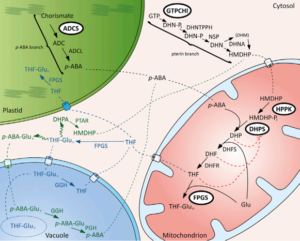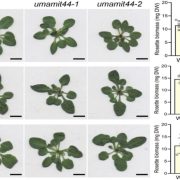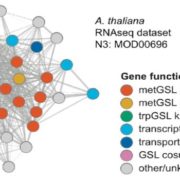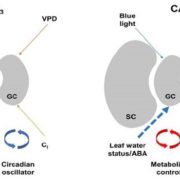Folate Biofortification of Potato by Tuber-Specific Expression of Four Folate Biosynthesis Genes ($)
 Mol. Plant Deficiency in Vitamin B9 (folate) is one of the major causes of birth defects and maternal deaths. As potato is a staple crop for several populations worldwide, one strategy to reduce the risks of folate deficiency is the biofortification of potato. This would be extremely useful, as the natural variation in folate content is very low (3-4 folds) and therefore breeding programs are unlikely to be successful. Rice and tomatoes were recently enriched in folate by overexpressing the genes GTPCHI and ADCS. However, the same strategy previously led only to accumulation of folate precursors in potato. The authors improved this strategy by overexpressing other two additional genes: HPPK/DHPS and FPGS in the potato cultivar Desirée. The two additional genes would sustain the last folate biosynthetic steps that are located in the mitochondria. Patatin promoters were used, to ensure specific expression in the tubers.
Mol. Plant Deficiency in Vitamin B9 (folate) is one of the major causes of birth defects and maternal deaths. As potato is a staple crop for several populations worldwide, one strategy to reduce the risks of folate deficiency is the biofortification of potato. This would be extremely useful, as the natural variation in folate content is very low (3-4 folds) and therefore breeding programs are unlikely to be successful. Rice and tomatoes were recently enriched in folate by overexpressing the genes GTPCHI and ADCS. However, the same strategy previously led only to accumulation of folate precursors in potato. The authors improved this strategy by overexpressing other two additional genes: HPPK/DHPS and FPGS in the potato cultivar Desirée. The two additional genes would sustain the last folate biosynthetic steps that are located in the mitochondria. Patatin promoters were used, to ensure specific expression in the tubers.
With this approach, a 12-fold increase in total folate content was achieved. The same strategy can now be applied to other potato cultivars, hopefully leading to similar results. (Summary by Elisa Dell’Aglio) Mol. Plant org/10.1016/j.molp.2017.12.008









